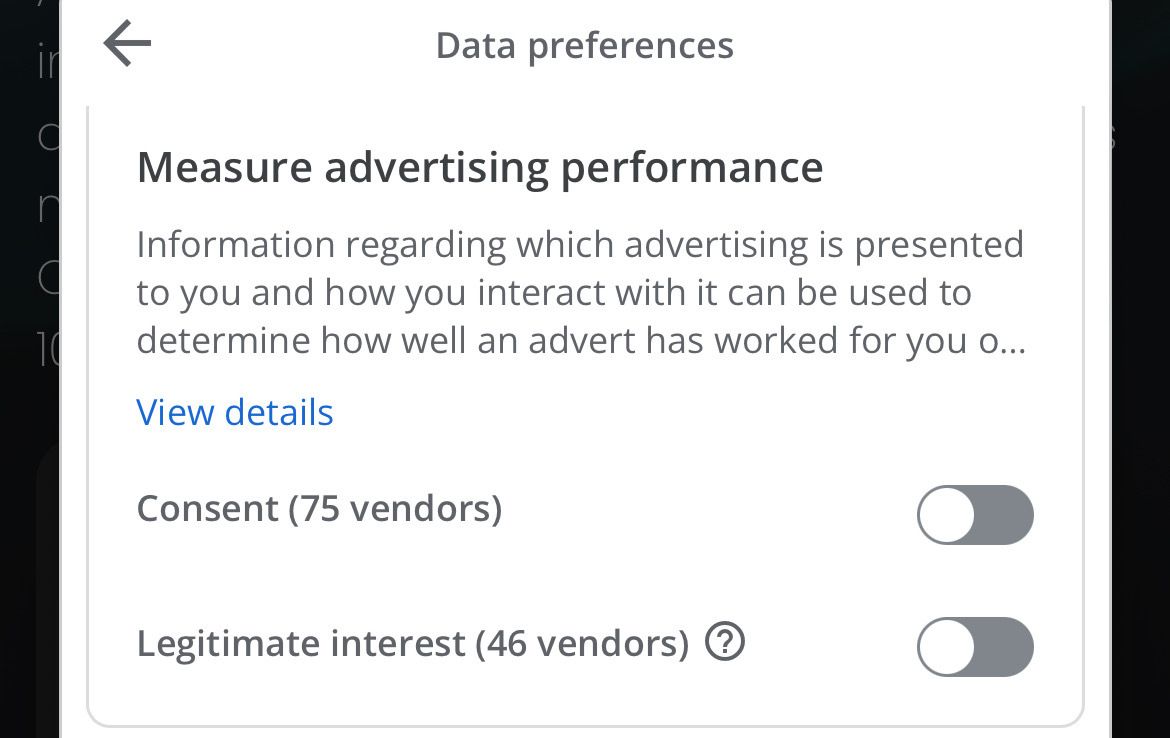How would a company decide that something should be “legitimate interest” vs “consent”?
EDIT: Definition of “Legitimate Interest”, when hovering over the question mark.
How does legitimate interest work?
Some vendors are not asking for your consent, but are using your personal data on the basis of their legitimate interest.



Copypasting here answer to similar question in superuser.com
https://superuser.com/a/1624773
Under GDPR there are 6 grounds based on which anybody can process personal data. Those are:
Consent
You explicitly agreeing to it. This needs to be opt-in, informed, specific and freely given, but also gives the greatest freedom to a company.
Contract
This is the basis which raj’s answer confused with legitimate interests. This is the processing that is required to fulfil a contractual obligation (note that contracts do not always need to be signed, e.g. an order from an eshop).
Source: ico.org.uk
Legal obligation
Vital interests
Public task
Legitimate interests
Legitimate interests are the most flexible lawful basis for processing personal data. In the words of the UK’s ICO 1:
Source: ico.org.uk (worth reading!!!)
The underlying text from the GDPR itself (definitions and links added are mine)
Source: GDPR Article 6(1f)
So basically a legitimate interest claim by a company is them saying ‘we are convinced that our interest outweigh the negligible impact on the privacy of the people whose data we process’. This doesn’t give them a free pass though, as GDPR also gives the right to object
Source: GDPR Article 21(1)
Which then require the company to either concede and stop the processing or justify their claim. Companies in practise have taken this to mean they can basically just do a bunch of processing and as long as they make the objection process (=opt-out) easy enough the theory is that they will get away with it.
Notes:
1 The UK left the EU, but they still have by far the best English language resource explaining GDPR and for the time being “UK GDPR” matches “EU GDPR” one on one as far as I am aware
Thanks for the explanation!
Legitimate interest makes complete sense with something like an online shop, but trying to read a news article/blog post, do I really need to have 100s of vendors claiming “legitimate interest”?
Yeah “legitimate interest” seem to be abused a lot
Advertisers believe they are doing you a favour by using personal information to serve “better” ads that would be more “interesting” to you.
I’ll “legitimately” decline then.